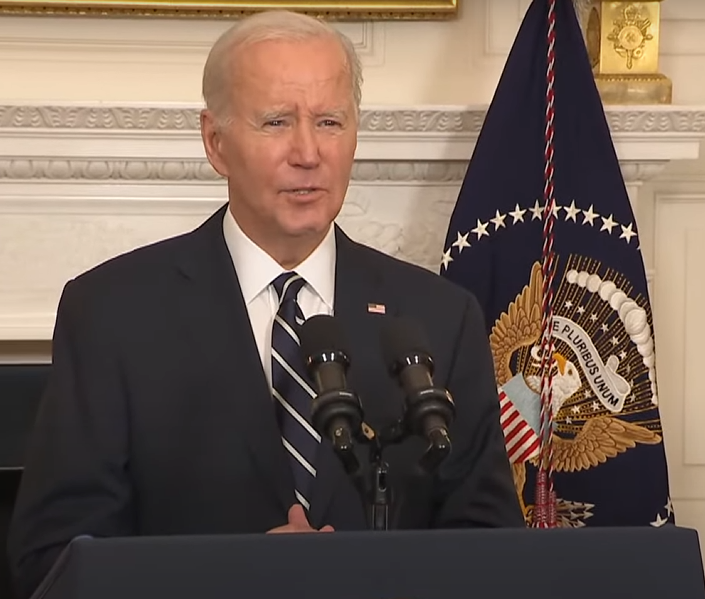As President Biden addresses the worsening Israel-Palestine crisis, he must weigh enduring friendships, domestic politics, and a fine line.

In a world rife with complex geopolitical issues, President Joe Biden finds himself in the eye of a storm, grappling with the escalating violence between Israel and Palestine. The situation has placed tremendous pressure on his administration, adding yet another layer of complexity to an already challenging tenure.
Historic Ties Tested
The enduring friendship between President Biden and Israeli Prime Minister Benjamin Netanyahu, forged over decades, is facing its most trying test yet. The Israeli government's far-right coalition has strained their relationship, creating a diplomatic conundrum for the United States.
Elusive Partners for Peace
The fragmented political landscape among the Palestinians further complicates matters. Identifying a reliable negotiating partner amidst this uncertainty poses a significant challenge for American officials.
Domestic Politics at Play
Back in the U.S., the ongoing Republican presidential primary campaign appears poised to lay blame on President Biden for his role in fueling attacks on Israel through a recent deal with Iran. This political maneuvering only adds to the pressure on the Biden administration.
The Saudi-Israeli Accord Dilemma
Looming in the background is a potentially historic normalization agreement between Israel and Saudi Arabia, an initiative that President Biden had hoped was nearing completion. This development, however, is now shrouded in uncertainty, adding another layer of complexity to an already intricate puzzle.
Biden’s Double Burden
President Biden's term is further complicated by the ongoing conflict in Ukraine, which has become a contentious political issue domestically. This, coupled with the Israel-Palestine crisis, places his administration in the midst of one of the most volatile geopolitical situations to date.
A United Front
In response to the crisis, President Biden assured Israel of unwavering U.S. support. He emphasized, "Israel has the right to defend itself and its people, full stop." The President also pledged "all appropriate means of support to the government and people of Israel."
A Historic Precedent
Recalling the past, during the last major conflict between Gaza and Israel, President Biden and American officials played a pivotal role in brokering a ceasefire. He held multiple discussions with both Netanyahu and Palestinian Authority President Mahmoud Abbas. U.S. officials maintained close contact with the region's leaders, relying on Egypt and Qatar to mediate with Palestinian militant groups in Gaza to secure a ceasefire.
A Shift in Dynamics
However, the dynamics in the region have evolved significantly over the past two years. President Biden has openly criticized Netanyahu's government's judicial overhaul attempts, which he sees as a threat to democracy. This criticism, in turn, has strained their relationship and delayed a face-to-face meeting until recently.
The Constructive Meeting
Nevertheless, the recent meeting at the UN General Assembly was deemed "constructive" and "candid" by officials. It included a lengthy one-on-one discussion without aides, and Biden extended an invitation to Netanyahu to visit the White House.
Netanyahu’s Political Challenge
Yet, the Israeli Prime Minister faces domestic political challenges, trying to maintain his far-right coalition. This may hinder American diplomatic intervention as pressure mounts for a decisive response.
Palestinian Quagmire
Political stagnation among the Palestinians adds to the complexity of the diplomatic response. Choosing which faction to engage with becomes increasingly challenging as their leadership remains in power without elections.
Dashed Hopes
Just a week ago, President Biden hoped for a significant agreement between Israel and Saudi Arabia, one that could reshape the Middle East. The deal was expected to involve concessions from Netanyahu on issues such as freezing settlements and recognizing a future Palestinian state. However, the surge in violence has cast a shadow over the likelihood of these concessions.
Political Fallout
The aftermath of the attacks in Israel has already become a political battleground for Republican presidential candidates. Former President Donald Trump, the leading GOP contender, criticized Biden for unfreezing Iranian funds, claiming it "betrayed Israel." Other candidates echoed this sentiment, portraying the administration as weak and indecisive.
The Administration’s Response
A senior administration official clarified that the unfrozen Iranian funds were solely for humanitarian purposes and had not been spent. Despite this, the political discourse surrounding the crisis continues to intensify.
In conclusion, President Biden finds himself navigating a diplomatic minefield as he addresses the escalating Israel-Palestine conflict. With historic friendships tested, domestic politics in play, and a delicate balance to strike, the world watches closely as the Biden administration endeavors to bring stability to a volatile region.
Also read:
1 thought on “Biden Navigates Political Quagmire as Israel-Palestine Crisis Intensifies”